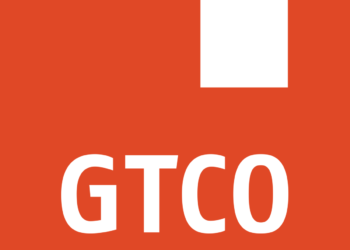The success of the Nigerian economy is dependent in large part on the performance of young people within the country. This is true to some extent in virtually every country in the world, but in Nigeria, members of younger generations make up a disproportionately large share of the broader population.
In fact, according to a 2022 report concerning investment advice, the current media age in Nigeria is 18.1, and the country “boasts the greatest population of youth in the entire world.” Within that population, some 70% of Nigerians are under the age of 30.
A country’s economy tends to prosper when its youth are financially secure. Young people with financial security are better able to grow their wealth, ultimately leading to the stimulation of the local economy, the creation of new businesses, and the spread of opportunity. For these conditions to come about, however, young people have to have the means to save and invest responsibly.
According to the same report that cited youth numbers in Nigeria, Millennials and Gen Z prefer to go about this kind of investment via “beginner-friendly” mobile trading platforms with strong customer service. These kinds of platforms are emerging all over the world to make it simpler for young people to pursue financial opportunities when they may not trust or be familiar with traditional financial institutions. Lately, it has become apparent that the Nigerian government is willing to invest in the creation of more technologies and businesses that will serve these purposes.
This past spring, news broke concerning the launch of a new fund that will direct $618 million (₦472 billion) to “support tech and creative sectors for young investors who struggle to raise capital in Africa’s largest economy.” Designed under the umbrella of the Investment in Digital and Creative Enterprises (IDICE), this fund is meant to foster digital tech entrepreneurship and, by extension, job creation. Specifically, it will provide collateral that will enable new start-ups to attract funding that they have, in some cases, struggled to draw in otherwise. Notably, these start-ups do not have to concern investment or financial savings. With fintech already dominating much of the Nigerian start-up scene, however, it is reasonable to look at the $618 million fund as an investment in new means of investment for Nigeria’s youth.
To give some idea of the kinds of investment-related initiatives that are likely to emerge as a result of this fund’s establishment, it is worth considering some of the digital investment opportunities that have already arisen In Nigeria in recent years.
Share Investment
Many look at share investment as the most straightforward form of financial investment. This is the process by which individuals are able to buy into companies by purchasing shares at prices reflecting those companies’ strengths and recent performance. In the past, share investment had to be conducted via established brokerage firms, often in intimidating environments and with considerable fees and complex processes. More recently, however, much of the world has seen the emergence of simplified share investment platforms and mobile apps, often supporting trades with smaller fees, faster transaction times, and more strategic support.
This has begun to happen in Nigeria as well, with one prominent savings and investment platform having already established a base of over 4.5 million users as of this autumn. What this means is that a local business has provided young Nigerian investors with an easier and more appealing means of conducting share investment. The hope, naturally, is that the government’s newly established $618 million fund will help similarly successful fintech platforms to emerge.
Real Estate Investment
The same platform that has grown its base to more than 4.5 million users with easy and secure access to shared investment also supports real estate investment. Once upon a time, buying into real estate markets typically meant establishing full ownership of property in the hopes that its value would increase over time. Now, however, there are different ways of investing in real estate, some of which can be done through an app. For instance, many favor the option of buying into real estate investment trusts (REITs), which are publicly traded entities representing owned properties.
Some recent data has suggested that Nigeria owns the busiest real estate investment market on the continent, with more than $500 million being poured into the sector in the last 20 years. The growth of more mobile trading apps supporting real estate investment will only help support further activity.
Forex Trading
Another popular investing option in Nigeria of late has been forex trading, with surveys suggesting that there were upwards of 300,000 active traders in the country as of 2021. This is a form of trading within which investors trade what are known as “currency pairs,” effectively buying and selling different currencies against one another’s values. Short-term fluctuations tend to be minimal and are measured not in whole units of currency but in “pips,” denoting fractions of changes in value. With frequent trading and leveraged investment, however, successful forex traders can profit over time.
In this area, too, the emergence of streamlined platforms and investing apps has welcomed new, young traders. These platforms provide access to international currency pairs and support users with pip calculators that make assessments more transparent. Investors can input data relevant to their trades and determine the value of pips relative to their holdings, ultimately making more informed decisions.
Cryptocurrency Trading
The cryptocurrency trade has presented a complicated picture for some time now. Crypto markets crashed severely enough in 2021 that some questioned whether they might ever rebound. There have also been significant issues with scams and lost funds, though as has been noted here previously, cryptocurrency losses have been down of late. Even with these occasional issues, however, young investors around the world and in Nigeria have continued to show interest in digital currency.
The crypto trade calls for the purchase and sale of digital assets through specially designed digital wallets; it operates almost like a cross between share and forex trading. For many years, however, the process was conducted largely through unfamiliar, tech-forward exchanges that average traders had trouble navigating. More recently, waves of fintech innovation within Nigeria and elsewhere have given rise to more straightforward and intuitive platforms that make the crypto trade more approachable.
Back in 2021, President Muhammadu Buhari described the Nigerian youth as the country’s most strategic asset. He also acknowledged, however, that the country’s young people were frustrated by the “inability of the nation’s institution” to keep pace with their drive. Platforms and services like the ones outlined above are designed to keep up with that drive, however. The hope is that Nigeria’s new investment in entrepreneurial opportunity –– and, by extension, fintech startups –– will bring about more of the same, encouraging financial investment and prosperity among the country’s youth.






















